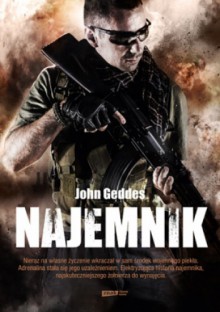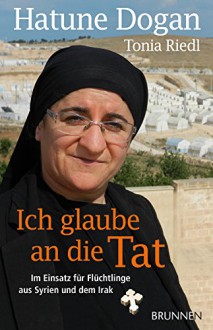
Anybody who has been following my reviews for a while will know that I love John Dolan’s writing. I discovered his books a long while back and I’ve been following his career with interest ever since. I was both sad and exhilarated when he brilliantly closed his previous series Time, Blood and Karma with the novel Running on Emptiness (you can check my review here). I bought a copy of his new book, the beginning of a new series, Karma’s Children a while back, but it wasn’t until I received the ARC for the second book that I realised I had yet to read and review the first one. Yes, I’d been busy, but I wonder if part of my reluctance was to do with starting a new series afresh, after having enjoyed the previous one so much. Could it live up to my expectations?
Having now read the first book (and started the second one straight away), it’s fair to say that it has. The new book is not a complete break. Some of the characters and the settings we are already familiar with (I don’t feel qualified to comment on how well the book stands on its own. My inkling is that it could be read and enjoyed by somebody who hadn’t read any of the previous books, but there would be quite a few lose threads and I’m sure the reading experience would be completely different). Yes, we have David Braddock, the British amateur detective-cum-therapist living in Thailand who decides to confront some of the issues pending in his life (he’s always reminded me of Hamlet, and I must say that like Shakespeare’s character, he can make me feel impatient at his dithering sometimes), but not others. We also have Jim Fosse, a fascinating villain, a psychopath or sociopath who is up to his old tricks and some newer ones. And we have two other characters that bring new concerns (some at least) and settings into the story. Sam Trask, an American Iraq War veteran, who has suffered physical injuries that he has mostly recovered from, but the same cannot be said for the mental scars from his experiences, and another American character, Reichenbach, who remains mostly in the shadows, and whom I suspect we haven’t seen the last of (and I’ll keep my peace and let you make your own minds up about him).
The story moves between the different characters, and although, apart from Sam’s military history it is mostly shown in chronological order, there are changes in setting and point of view, and a fair amount of characters, which require the reader to remain attentive at all times. Most of the story is told in third-person mostly from the point of view of the character involved (although I was more aware of the narrator in this book that I had been before. This was particularly evident in the parts of the story following Sam, who is not a bookish man, as evidenced by his dialogue and his backstory, but even when we are with him, we are provided insights and observation that go well beyond his psychological and cultural makeup), and the alternating points of view allow us to be privy to information that gives us more of an overall and multifaceted picture than that of any of the individual characters. However, the Jim Fosse’s fragments of the story are narrated in the first person and that makes them particularly chilling and at times difficult to read. A character with no moral compass and good brains, a master manipulator and plotter, his attitude reminded me at times of the main character in American Psycho (although more inclined to psychological mind-games than to out-and-out violence); and his role is central to most of what happens in the story, although I won’t reveal any details. He does not have any redeeming qualities (at least none than I’ve discovered yet), but he is witty, his observations can be humorous (if you appreciate dark humour) and accurate, and there is no pretence there, and no apology. He plays his part well for the public, but in private he does not hesitate or dwell on the consequences of his actions. If he wants something and it does not involve a high risk for him, he’ll go for it. And I find that refreshing indeed. No, he’s not somebody I’d like to meet (or rather, he’s not somebody in whose way I’d want to be), but he is a great character to read about.
These men (well, not so much Jim Fosse, although he does, at points, becomes obsessed with what seems to be his female counterpart) are obsessed by women, one way or another, and riddled by guilt (definitely not Fosse), be it by commission or by omission. But, if we truly look into it, these are men whose issues with women seem to hide some deep insecurity and doubts about their own selves. Sam Trask, in my opinion the most sympathetic of the characters, is an innocent abroad (he has been out of his country as a soldier but otherwise he is quite naïve to the ways of the world), without being truly innocent. He is tortured by the memory of something he witnessed. His difficulties made me wonder if guilt by omission is not even worse than true guilt. Because if you’ve done something terrible, you can tell yourself you won’t do it again, but if what happened was not of your own doing, how can you guarantee that it will not happen again? Yes, you might tell yourself that you will react differently next time, but you can never be sure you will be in a position to do so, or it will make a difference. You were, in a way, another victim of the situation but complicit in it at the same time. No wonder it is not something one can recover easily from.
As I said, I enjoyed meeting Sam, and felt for him and his difficulties. I’ve mentioned Jim Fosse, and I am curious about Reichenbach, who pulls some of the strings. I felt less close to Braddock than I had in the past. I am not sure if it was the narrative style, or the fact that he is less central to the story, appears less sharp (he missed quite a number of clues), and seems to spend an inordinate amount of time thinking about smoking. He remains intent on protecting himself and not fully confronting the truth about his relationship with this father and his own unresolved issues. I’m sure it’s a personal thing, but when he reflects on women and their role, I felt like shaking him and telling him to grow-up. I guess I’m coming more and more to Da’s (his faithful no-nonsense secretary/associate) way of thinking.
The writing is supple, suffused with psychological and philosophical insights, a great deal of understatement and fun, witty comments, and eminently quotable. One can’t help but wish to have such a witty internal narrator to accompany us in our adventures.
The mystery (there are several but all end up fitting into a complex scheme) is cleverly constructed and although as I said we, the readers, know more than any of the individual characters (thanks to the different points of view and the multiple story strands), it is not easy to guess exactly how things will be solved. Those of us who have been following the stories from the beginning might have an inkling (of course things are not as they seem, but that’s no surprise), but I don’t think many readers will get it 100% right. And that is one of the joys of the story. The vivid and multiple settings, the accurate psychological and sociological insights, and the fabulous characters and dialogues make for a fabulous read as well. This is the strong beginning of another of John Dolan’s masterful series. And I’ll be sure to keep reading it.

 Log in with Facebook
Log in with Facebook 










